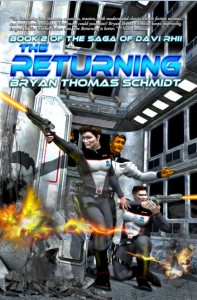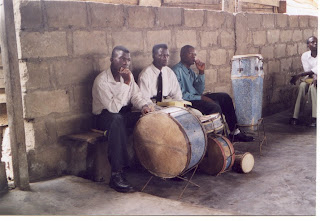 I respect interviewers. In case you don’t realize, I am one. I have a lot of experience with it. Weekly. Sometimes daily, as an interviewer, not just interviewee. But there’s a practice that’s becoming more and more prevalent these days and which I really abhor of people preying on hopeful authors’ dreams and offering big exposure if they’ll just pay a fee for the privilege. And often this takes the form of interviews. And I find that pretty insulting. Exceptions might be a few cases where you’re guaranteed exposure like national television or radio, but even then, you shouldn’t have to pay and here’s why: They need content.
I respect interviewers. In case you don’t realize, I am one. I have a lot of experience with it. Weekly. Sometimes daily, as an interviewer, not just interviewee. But there’s a practice that’s becoming more and more prevalent these days and which I really abhor of people preying on hopeful authors’ dreams and offering big exposure if they’ll just pay a fee for the privilege. And often this takes the form of interviews. And I find that pretty insulting. Exceptions might be a few cases where you’re guaranteed exposure like national television or radio, but even then, you shouldn’t have to pay and here’s why: They need content.
That’s right. You’re providing them content they need. Why else would they be out following random people on Twitter, commenting on your blog or advertising for authors to use their “great interview services?” One guy is so foolish about it, he follows you, then when you follow back, he unfollows. Uh, yeah, right. He’s preparing to interview me and he’s not doing research? There’s a clue right there.
Blogs and media need content. And the reason authors get interviewed is that people are interested. They want to find new books. They want to learn about celebrities and people doing something significant they admire. That’s why authors are getting invited to interviews and it’s why you don’t need to pay to do them.
I have another secret for you to. Listen carefully. There is no short cut to a large audience. Nope. Sorry. Even seeming overnight bestsellers are not overnight. It took them years to get there. And with the marketing muscle of a major New York corporation behind you, it’s easier to get boosts in exposure more quickly, but that takes thousands of dollars, even millions sometimes, and multiple outlets in a constant stream several times a day for weeks or months. If you can’t afford that, you’re paid interviews may give you a slight momentary splash, but I promise it’ll fade within a few hours or minutes and you’ll be back where you started. Even worse, the sales generated won’t make up for it. If I sell it myself, I make $3 per book sold roughly. At least until publisher’s advance and costs are recouped. If I paid $50 for an interview, that would mean I had to sell 17 books to just break even. I’d be losing my $3 on each book because I already spent it. So that’s like giving 17 books out for free. If you pay more for an interview, well, you do the math.
There’s a reason some sites charge for interviews and others don’t. Greed. Yep. They know people are desperate and hungry and they’re taking advantage. They have so many people wanting in, they have people pounding down their doors. And as long as authors continue this foolish rush, they will continue to get used by these people. The authors are not getting rich. The interviewers might be.
I maintain three websites. I spend $300 a year in hosting. That’s $25 per month. I spend 10-12 hours a week in responding to comments and writing posts. If I were paid for that, I’d charge at least $20 an hour. But to keep traffic growing and steady, I need regular posts, and I post not just on my blog but other places where I can link and keep visibility, so I write 4-6 posts a week. At an hour a post, that’s about $120 a week. Forget the comments, let’s call that part free. Most interviewers don’t bother responding to those. So that’s $505 a month right now for my three blogs and time and effort. But these sites post daily. And they post interviews two or three times a week. At three a week, $50 each, they are making $150 or $600 a month. If they have only one blog, they are probably paying $100 or so for hosting. Prep time on interviews is maybe an hour per post. $20 per hour. Plus social media marketing. I spend 3 hours a week probably on that. So $60. So add social media to mine at I am at $565. If you add the time it takes to do interview questions, let’s be generous and say an hour each, that’s $60. So their expenses are $120+$8.40 for hosting each month. $130. They have made $20 off those three interviews. And if you consider they probably don’t account for blogging time, they’ve actually made $70. You’ve lost $50. Who’s getting the better deal?
Interviews are invaluable for lots of reasons. The more the better. The more sites the better. Why do you see celebrities all over the place saying the same things over and over? Because they reach a different audience at each place. It has value for them. And that’s great. But they don’t pay for it. They get it free, because the interviewer uses their name in promotion and gets a lot of audience which is ad revenue. You may be an emerging or unknown author, like myself, but you are still bringing value. Someone interesting people can discover offering possible book of interest. In fact, the fact that you’re not on every channel is to your advantage. They’re less likely to flip through because you’re something new.
And I’ll tell you another thing. Since you don’t have access to their blog stats, you can’t verify the audience they guarantee exposure, too–not for your post, not for other posts. Those visitor counters can be faked. You can get ones that ask you which number you want to start the count on. (Oh wow, day one and I already have 150k hits, I’m awesome!) It varies day to day for them as much as it does for anyone else. AND there are tons of other sites you don’t have to pay for–bloggers, fellow authors, etc. who’d gladly welcome you. You just have to network and ask around. When I tweet that I’m looking for host sites, I always get one or two responses from places I didn’t think of or know about. Free.
If you get a big publishing contract and your publisher wants to spend money that way, let them. Who cares as long as it’s not coming out of your pocket. But when it does come out of your pocket, you should be careful to make sure it really delivers the return you want and need. Don’t buy these interviewers’ story about how they’re just trying to help you succeed. They just care about authors and want to help them live their dreams. My initials. (Drop the middle one.) I’m pretty confident that’s NOT their main motive. Instead, they are like all the other Writing Scams, and they are numerous, read http://www.sfwa.org/for-authors/writer-beware/ sometime if you don’t believe me. You are not alone in your dream of writing success. But don’t let greedy people take advantage. This is just one more way to victimize writers, and you deserve better because writing a book is a big accomplishment. It’s worth celebrating. And you shouldn’t have to pay for that.
For what it’s worth…
 Bryan Thomas Schmidt is the author of the space opera novels The Worker Prince, a Barnes & Noble Book Clubs Year’s Best SF Releases of 2011 Honorable Mention, and The Returning, the collection The North Star Serial, Part 1, and has several short stories featured in anthologies and magazines. He edited the new anthology Space Battles: Full Throttle Space Tales #6 for Flying Pen Press, headlined by Mike Resnick. His children’s book 102 More Hilarious Dinosaur Jokes For Kids from Delabarre Publishing. As a freelance editor, he’s edited a novels and nonfiction. He’s also the host of Science Fiction and Fantasy Writer’s Chat every Wednesday at 9 pm EST on Twitter, where he interviews people like Mike Resnick, AC Crispin, Kevin J. Anderson and Kristine Kathryn Rusch. A frequent contributor to Adventures In SF Publishing, Grasping For The Wind and SFSignal, he can be found online as @BryanThomasS on Twitter or via his website. Bryan is an affiliate member of the SFWA.
Bryan Thomas Schmidt is the author of the space opera novels The Worker Prince, a Barnes & Noble Book Clubs Year’s Best SF Releases of 2011 Honorable Mention, and The Returning, the collection The North Star Serial, Part 1, and has several short stories featured in anthologies and magazines. He edited the new anthology Space Battles: Full Throttle Space Tales #6 for Flying Pen Press, headlined by Mike Resnick. His children’s book 102 More Hilarious Dinosaur Jokes For Kids from Delabarre Publishing. As a freelance editor, he’s edited a novels and nonfiction. He’s also the host of Science Fiction and Fantasy Writer’s Chat every Wednesday at 9 pm EST on Twitter, where he interviews people like Mike Resnick, AC Crispin, Kevin J. Anderson and Kristine Kathryn Rusch. A frequent contributor to Adventures In SF Publishing, Grasping For The Wind and SFSignal, he can be found online as @BryanThomasS on Twitter or via his website. Bryan is an affiliate member of the SFWA.



